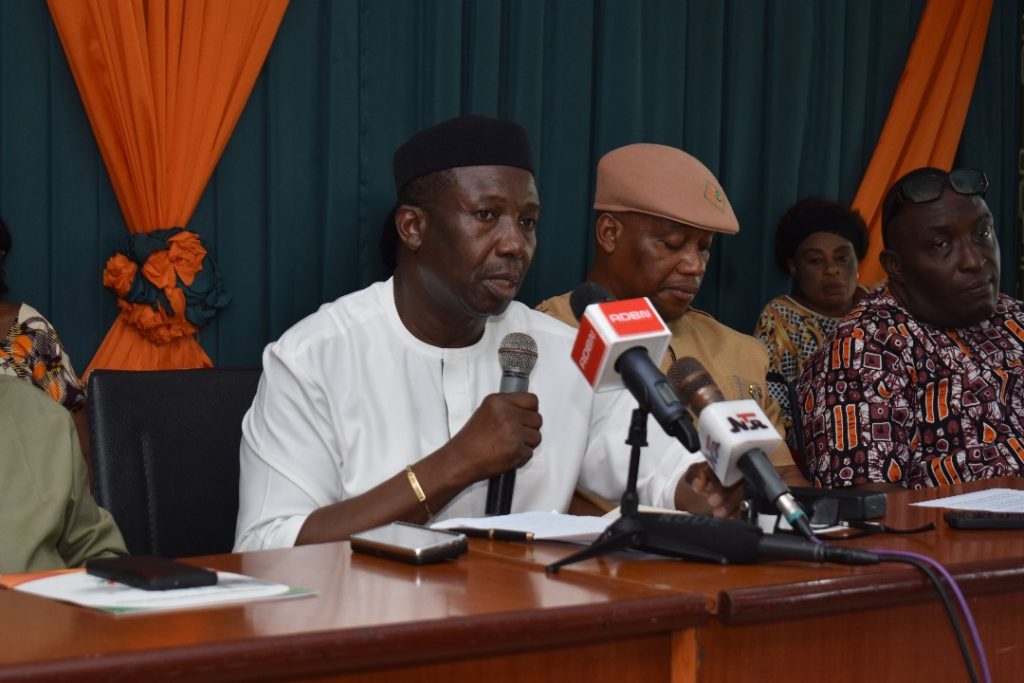Akwa Ibom State’s Internally Generated Revenue rose from N34.75 billion in 2022 to N43.18 billion in 2023, showing a significant increase of 80.5 percent IGR in one year.
Addressing a press briefing in Uyo on Sunday, Sir Okon Okon, the Executive Chairman of Akwa Ibom State Internal Revenue Service (AKIRS), said the amount was generated “during Governor Umo Eno administration, as shown in the figures released by the National Bureau of Statistics (NBS) and Joint Tax Board (JTB), the apex body for tax authorities and final authority for reporting tax revenues in Nigeria.”
Mr. Okon, spoke at the end of a two-day Strategy Session for 2025, noted that “It is on record that Akwa Ibom State ranked among top 10 in IGR performance in Nigeria in 2023, coming 4th among the nine States of the Niger Delta in the recently released ranking published by the NBS.
Related news
- Akwa Ibom Budget to Get N60 billion boost in 2024- AKIRS
- AKIRS collects more Revenue in Q3 of 2023 than last year- Okon
- Mistrust in past leaderships led to Poor tax payment – Commissioner
“Our IGR trend shows significant and steady growth, with about 170 percent increase over the past six years, rising from N15.96 billion in 2017 to N43.18 billion in 2023.”
“Our IGR outlook for 2024 is very impressive and likely to surpass the set target for the year,” according to him.
He attributed the impressive growth to significant governance reforms by the State Government, improvement in corporate governance, and operational processes by the Board and the business-enabling environment created by the administration of Governor Umo Eno.
The Executive Chairman used the opportunity to thank Governor Umo Eno for his support to the Service throughout the year and his avowed commitment to create a friendly tax environment capable of promoting ease of doing business and devoid of multiple taxations.
He further thanked numerous taxpayers, collaborating MDAs, partners, stakeholders, the media community, and the general public for their cooperation and support throughout the year.
Okon, however, assured the public to “speed up the digitalization programme next year by further expanding the automation of our processes and deepening our data-driven initiatives” by improving the operational efficiency and increase the State’s IGR without increasing any tax rate.
The AKIRS Boss vowed to improve via the application of technology, increased tax awareness campaign, and the expansion of the tax net to capture tax evaders.
“Therefore, our focus for the next fiscal year would be to transform our processes from a semi-manual system to full automation. We intend to achieve an end-to-end automation of all our tax processes. This was the outcome of the two-day strategy session, which ended yesterday.
“This post-strategy session media parley, which has been a routine, is intended to share our plans for next year with taxpayers through the media.
“AKIRS plans to roll-out electronic assessment, e-tax clearance process, e-filing of tax returns, automation of registration, collection and reporting processes with the ultimate aim of enhancing efficiency in revenue collection, taxpayers’ experience and minimization of human interference.”
According to him, ”Also, we will upscale our ongoing tax sensitisation and enlightenment campaign to raise awareness on tax payment as a civic responsibility and deepen voluntary compliance.
”We assure our taxpayers that in our efforts to consistently improve on the State’s IGR, we will be cautious not to embark on any initiative that will stifle business growth or overburden our individual taxpayers but will align with the impressive and favourable disposition of our dear Governor towards promoting SMEs, entrepreneurship and enabling businesses environment.
”In the course of this year, we have deepened our engagements with our stakeholders through different strategic initiatives. This includes tailored capacity building workshops on contemporary taxation for the State’s judiciary officers, intensive tax sensitisation and enlightenment campaign on radio, promotion of tax clubs in our tertiary institutions, and technical collaborations with other tax authorities,” he added.

